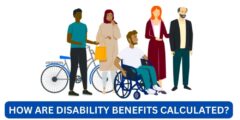The loss of a loved one is a difficult and emotional experience, and it can be even more challenging when that loved one was a veteran. Fortunately, the Department of Veterans Affairs (VA) offers survivor benefits to help ease the financial burden for the families of deceased veterans. These benefits can provide financial assistance for funeral expenses, monthly income, and even education. However, not everyone is eligible for these benefits. In this article, we will explore who qualifies for VA survivor benefits and how to apply for them.
Contents
Who is Considered a Survivor?
Before we dive into the specific qualifications for VA survivor benefits, it is important to understand who is considered a survivor in the eyes of the VA. According to the VA, a survivor is defined as “a spouse, child, or parent of a deceased veteran.” This means that only immediate family members of the deceased veteran are eligible for survivor benefits.
It is also important to note that the VA does not consider extended family members, such as siblings or grandparents, as survivors for the purpose of receiving benefits. However, in some cases, these family members may be eligible for other forms of assistance from the VA, such as counseling services or home loans.
Read:What is marginal benefitQualifications for VA Survivor Benefits
Now that we have established who is considered a survivor, let’s take a closer look at the specific qualifications for VA survivor benefits. These qualifications vary depending on the type of benefit being sought, so we will break them down into three categories: death pension, dependency and indemnity compensation (DIC), and education benefits.
Death Pension
The death pension is a tax-free benefit paid to eligible survivors of deceased wartime veterans. To qualify for this benefit, the deceased veteran must have met the following criteria:
- Served at least 90 days of active duty, with at least one day during a wartime period
- Received a discharge other than dishonorable
- Had limited income and assets
- Was permanently and totally disabled at the time of death (not necessarily service-connected)
In addition to these requirements, the surviving spouse must have been married to the veteran for at least one year, or have a child with the veteran. If the surviving spouse remarries, they will no longer be eligible for the death pension.
It is important to note that the death pension is a needs-based benefit, meaning that the VA will take into account the income and assets of the surviving spouse when determining eligibility. If the surviving spouse’s income and assets exceed the limit set by the VA, they may not be eligible for the death pension.
Read:How long does an employer have to contest unemployment benefits?Dependency and Indemnity Compensation (DIC)
DIC is a tax-free benefit paid to eligible survivors of veterans who died as a result of a service-connected disability or disease. To qualify for this benefit, the deceased veteran must have met the following criteria:
- Served at least 90 days of active duty, with at least one day during a wartime period
- Received a discharge other than dishonorable
- Died as a result of a service-connected disability or disease
In addition to these requirements, the surviving spouse must have been married to the veteran for at least one year, or have a child with the veteran. If the surviving spouse remarries before the age of 57, they will no longer be eligible for DIC. However, if the remarriage ends due to death, divorce, or annulment, the surviving spouse may be eligible for DIC again.
Unlike the death pension, DIC is not a needs-based benefit. This means that the income and assets of the surviving spouse will not affect their eligibility for DIC.
Education Benefits
The VA also offers education benefits to eligible survivors of deceased veterans. These benefits can be used to cover the cost of tuition, books, and other education-related expenses. To qualify for these benefits, the deceased veteran must have met the following criteria:
Read:when to apply for social security benefits at age 62- Served at least 90 days of active duty, with at least one day during a wartime period
- Received a discharge other than dishonorable
- Died as a result of a service-connected disability or disease, or was rated permanently and totally disabled due to a service-connected disability at the time of death
In addition to these requirements, the surviving spouse must have been married to the veteran for at least one year, or have a child with the veteran. If the surviving spouse remarries, they will no longer be eligible for education benefits.
It is important to note that the education benefits for survivors are not limited to just spouses and children. In some cases, parents of deceased veterans may also be eligible for these benefits.
How to Apply for VA Survivor Benefits
If you believe you are eligible for VA survivor benefits, the first step is to gather all necessary documents and information. This may include the veteran’s discharge papers, marriage certificate, and death certificate. You will also need to provide information about your income and assets.
Once you have all the necessary documents, you can apply for VA survivor benefits online through the VA’s website, or by filling out and mailing in the appropriate forms. It is important to note that the application process may vary depending on the type of benefit you are seeking, so be sure to carefully follow the instructions provided by the VA.
After submitting your application, it may take several months for the VA to process and make a decision. If your application is approved, you will receive retroactive payments from the date of the veteran’s death.
Conclusion:
The loss of a loved one is never easy, but the VA survivor benefits can provide much-needed financial assistance to help ease the burden for the families of deceased veterans. By understanding who qualifies for these benefits and how to apply for them, you can ensure that you and your family receive the support you deserve. If you believe you may be eligible for VA survivor benefits, be sure to gather all necessary documents and apply as soon as possible. Remember, these benefits are meant to honor the service and sacrifice of our veterans, and it is important to take advantage of them if you are eligible.









